Honey: Why Honey is Dangerous for Babies
- Why babies should avoid honey; how honey contributes to infant botulism and a little bit about how botulism is a very rare - but real - risk
- Why baked goods with added sweeteners and sugars shouldn't be a high priority food for your baby...but also a simple swap for honey if you are just using a small amount in a baked good recipe for baby-led weaning
- Tips for preventing added sweeteners and sugars from sneaking into your baby's diet...plus more info on packaged goods with honey as an ingredient and whether or not they're ok for babies to eat
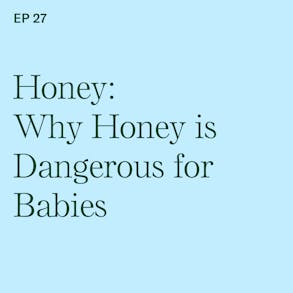
LISTEN TO THIS EPISODE
Episode Description
You probably know this, but babies should not have honey. Honey has the potential to cause infant botulism if fed to babies under 12 months of age. In this episode we are diving into why honey is a dangerous food to feed babies, what infant botulism is, how prevalent infant botulism is and how we can avoid honey.
Maybe you are also wondering if babies can have baked goods with honey? We’ll talk through how to safely substitute honey when baking and look a little more at other types of added sugars and sweeteners that sometimes sneak into babies’ diets too.

Links from this Episode
- Baby-Led Weaning with Katie Ferraro program with the 100 First Foods™ Daily Meal Plan, join here: https://babyledweaning.co/program and get $50 off when you sign up using the code BLWPOD50
JOIN NOW AT $50 OFF CODE: BLWPOD50
- Baby-Led Weaning for Beginners free online workshop with 100 First Foods™ list to all attendees, register here: https://babyledweaning.co/baby-led-weaning-for-beginners
Other Episodes Related to This Topic:
- Episode 68 - Sugar and Why Your Baby Should Avoid it with Robert Lustig, MD, MSL
- Episode 269 - Agave: Is it Safe to Offer Babies Agave in Place of Added Sugar?
- Episode 309 - Added Sugars: Which Ones to Avoid for BLW
Resources & Research
- https://www.aappublications.org/news/2019/03/25/sugarpp032519
- https://www.healthychildren.org/English/health-issues/conditions/infections/Pages/Botulism.aspx
- https://www.fda.gov/safety/recalls-market-withdrawals-safety-alerts/us-deer-antler-ex-im-inc-announces-recall-herbal-tea-varieties-pouches-due-risk-clostridium
- https://www.healthychildren.org/English/health-issues/conditions/chest-lungs/Pages/Coughs-and-Colds-Medicines-or-Home-Remedies.aspx

Latest Episodes
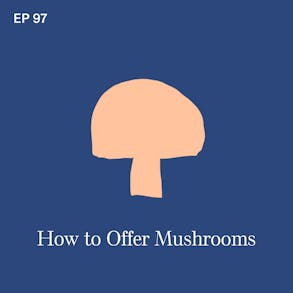
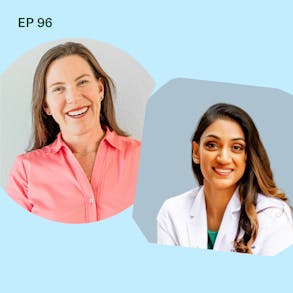
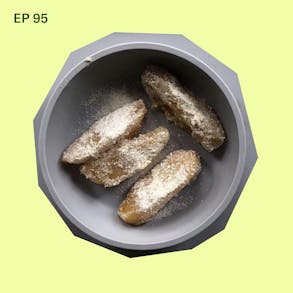
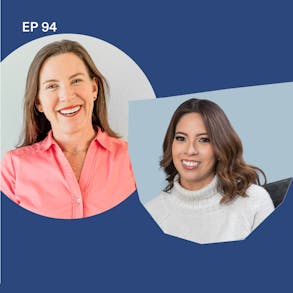

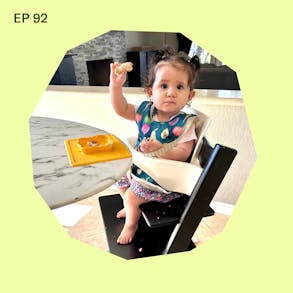
Katie Ferraro (0s):
My sister And I both like to cook. She has six kids, I have seven. But the primary difference between us is Kelly enjoys like scouring the internet for recipes and figuring out exactly what to make for dinner. And she actually likes going to the grocery store to buy the stuff. I, on the other hand, just wish that someone would tell me exactly every night what we are having for dinner. And also, I hate going to the grocery store to buy the ingredients for said dinner.
Hungry Root (23s):
Hungry Root has totally brought the joy back to weeknight cooking for me. So Hungry Root is more than just a meal kit. It is a personalized grocery service that actually does the thinking for you. It picks out what to cook and what groceries to buy based on your preferences, and then it delivers everything straight to your door. No more scrolling for recipes or wandering the grocery store aisles. Hungry Root does it all. I told them what kind of foods I like in the quiz. At the onboarding, they sent me a mix of fresh ingredients and easy meal kits that actually make sense for our busy life. I've got high protein meals, kid friendly snacks, even some fun treats, all made with high quality ingredients and none of the junk. And the best part, everything is super quick to make. I'm talking like 15 minutes or less and there's a normal amount of ingredients. 'cause I don't have time to open up like 15 tiny little packages. I don't have time to cook dinner from scratch. But Hungry Root does it for me. Just yesterday, last night, we had baseball games and the boys games always go so late. Like they always start that last inning, right when I'm like, oh my gosh, it's dinner time right now. I wanna go home. We got home late, but I was able to put together this amazing rigatoni olive vodka with chicken sausage dinner from Hungry Root, which to be honest, I would've never thought of looking up that recipe. And I would not have gone to the store to buy the ingredients, But there they were in my Hungry Root Box. Problem solved. If you would like to streamline your family meal prep, I think you're gonna love Hungry Root as much as I do. And right now you can get 40% off your first box plus a free item in every box for life. Just go to hungry root.com/weaning and use the code weaning at checkout. That's hungry root.com/weaning code weaning for 40% off your first box and a free item for life. Check it out.
Katie Ferraro (1m 58s):
It's really amazing when I called up General Mills to ask them about, well, what about Honey Nut Cheerios? Is the honey that's in there safe for infants? Since you're recommending Cheerios as an ideal first food, even though it's totally not because babies don't have their Prince of grass early on, there's added sugar and added salt in those products. And their answer is, well, no. This is not ideal for babies prior to one. So we've got the risk of honey being, you know, increased risk of botulism, but there's also this problem of honey is an added sweetener. And we recommend against added sweeteners, not just registered dietitians like myself, the American Academy Pediatrics, the World Health Organization, they all say no Added Sugars until age two.
Katie Ferraro (2m 38s):
So no matter which way you slice it, honey is an added sweetener not appropriate for babies. Hey there, I'm Katie Ferraro, registered dietitian, college nutrition professor and mom of seven specializing in Baby-Led Weaning. Here on the Baby-Led Weaning with Katie Ferraro podcast. I help you strip out all of the noise and nonsense about feeding, giving you the confidence and knowledge you need to give your baby a safe start to solid foods using Baby-Led Weaning You are very likely aware that honey is one of the foods that we don't offer to babies. And if you've done even a tiny bit of research, you know that a lot of the reasons that we don't offer certain foods to babies has to do with the choking risk.
Katie Ferraro (3m 22s):
Like, oh, you don't offer, you know, hard pieces of apple or hard candies or popcorn because those are choking risks. But honey is an interesting one because it's on the list of foods that we don't offer to babies for a totally different reason that primarily has to do with infant botulism and increasing the risk of infant botulism. But in today's episode, I wanna talk about, I don't know if it's a lesser known reason, but perhaps the lesser publicized reason why babies should not eat honey. So this episode is called How Honey Can Harm Your Baby. And Why To Avoid It If You're New Here? Welcome. I put out two new podcast episodes every week. I do a mini Baby-Led Weaning training episode on Mondays. I do a longer interview style episode with another feeding expert each Thursday.
Katie Ferraro (4m 6s):
My website, babyledweaning.co, has a ton of free resources for you, including a list of all 500 podcast episodes. If you've ever worried about anything related to your baby starting solid foods, I've probably got a short piece of content that I hope can help get you unstuck. So let's dive into talking today about honey and why parents might be confused about honey, right? Because if you think about honey, people who use it in place of refined sugars, they'll say, oh, well, it's natural and it's healthy. It shows up in recipes and yogurt and snacks and drinks and things that are marketed to kids, but honey is not safe for babies under one. The primary reason why we recommend against honey for use in infants is because of its tie to or its risk for increasing infant botulism.
Katie Ferraro (4m 52s):
So what is botulism? Well, it's a rare but serious illness caused by Clostridium botulinum spores. And these spores can live in honey and they can grow and proliferate in a baby's immature gut. And so this toxin, it's a neurotoxin, affects muscle movement. So at the very basic level, signs can include things like constipation or a weak cry, but then it can lead to poor feeding and muscle weakness. And the medical community is generally established that a safe cutoff point is for age one. So starting around age one, children can start to have some honey, and that has to do with the gut maturity. Okay? And your baby's gut is completely intact and able to digest and absorb and handle the vast majority of nutrients in solid foods even prior to six months of age, which I think is surprising to some parents.
Katie Ferraro (5m 41s):
But of course, we don't offer solid foods to infants prior to six months of age for two reasons, because number one, breast milk is sufficient to meet their needs up until six months of age. So you don't need anything else, any outside sources. And secondarily, babies aren't physiologically ready to safely swallow anything except infant milk until age one. But then when they do start introducing solid foods occasionally, especially in some certain food cultures, honey might work its way in. But we want to emphasize that I'm a registered dietitian and my other credentialed feeding expert colleagues would say the same. Even a tiny amount of honey can cause botulism. Okay, so infant botulism, I just want to be clear, it is serious, but it is rare.
Katie Ferraro (6m 24s):
So infant botulism is a rare but serious condition in 2019, the Centers for Disease Control and Prevention, that's the CDC reported 152 confirmed cases of infant botulism in the United States, although there were no associated deaths. Now in 2023, Texas documented 12 cases of infant botulism and averaged about one per month, which was the highest that they'd seen on a national level in a four year period. Okay? And fatalities from infant botulism, very uncommon. A lot of that is due to prompt medical intervention. Historical data does indicate that between 1976 and 2006, there were 20 deaths among hospitalized infant botulism cases and the most recent occurred in 2004.
Katie Ferraro (7m 6s):
So I don't share this information to scare you, I don't want you to think this is like, like a nationwide pandemic, something you need to be concerned about. It just, I think the figures underscore the importance of continued vigilance and preventative measure, such as avoiding honey in infants under age one. Now, sometimes we hear about honey pacifiers depending upon where you are geographically. In the United States, honey pacifiers are pacifiers that are filled with are dipped in. Honey. In 2018, the US Food and Drug Administration reported four infants in Texas were hospitalized with botulism after using such pacifiers. Okay? These pacifiers have been purchased in Mexico, but similar products also available for sale in the United States.
Katie Ferraro (7m 46s):
So these cases required hospitalization and life-saving treatment. There were no reported deaths among the affected infants. But it still is important to point out that sometimes honey is used to soothe either colicky infants or fussy infants. You oftentimes hear about honey being used as a natural cough suppressant. Hopefully that's being done only in older children. But you're just advised not to introduce honey prior to age one. That's because of botulism. But I also wanna point out that honey's not appropriate for infants because it is an added sweetener, okay? Babies do not need added sugar. And even though honey sometimes gets this, this is my opinion, and undeserved health halo, people think, oh, it's healthier than sugar, or it's healthier than these other types of sweeteners.
Katie Ferraro (8m 30s):
Honey is still an added sweetener, okay? Both the American Academy of Pediatrics and the World Health Organization recommend no added sugar for children up until age two. So in addition to the risk for botulism, it doesn't even make sense to be offering a baby honey because honey is a natural sweetener. Okay? And some of the drawbacks of added sweeteners, there's risk for dental issues, risk for obesity, there's the preference for sugary foods later, okay? If you're taking regular yogurt and adding honey to it to make it sweeter so the baby quote unquote eats it, and you're coercing the child into eating a food because you've sweetened it with an added sweetener, there's a lot of problems endemic in that situation. And actually, if you look at some of the baby food yogurts, it will blow your mind that there is actually added sugar in there.
Katie Ferraro (9m 15s):
Here is a product being marketed directly to parents who are feeding babies when it is clearly established that babies and children should not have any added sweeteners up until age two. So if you're reading the labels on foods that you're considering offering to your baby, my suggestion is to always look for zero grams of added sugar. And in that way, you'll know it doesn't have any Added Sugars in it. And in addition, it certainly won't have any honey for it. So there are some hidden honey sources to watch out for foods that are marketed to kids or toddlers, things like granola bars, yogurt, cereals, homemade recipes. We'll call for honey as a natural sweetener. I saw some water the other day. This is my no sugar granola recipe for toddlers, and it had honey in it. And I was like, you know that honey's a sweetener, right?
Katie Ferraro (9m 57s):
That that's technically sugar. And for your toddlers, a small amount of that, you know, you make the call for that, but for your baby's less than 12 months of age, we want to steer clear of honey. Hey, we're gonna take a quick break, but I'll be right back.
KiwiCo (10m 12s):
I grew up playing a lot of sports and six of my seven kids are really into sports. And then my youngest is not so much she begrudgingly will play soccer, but really art is her thing, And I wanna be able to share that experience. But I am the least artistic person on the planet, And I don't really feel like I have the skillset to be an art mom, which is why I am so grateful for Kiwi Co. Kiwi co clubs is the perfect gift for curious minds. Kiwi co develops hands-on projects and activities for kids of all ages. They have five clubs to choose from with unique topics like science, technology, engineering, art and math. And for my youngest, the artist, we get the Kiwi Co Studio. It's for ages six and up for art and design. And the last box had this motorized spin art project, which was so cool. We set it up together and then she went to town. My refrigerator is literally now a spin art gallery, but one thing I love about Kiwi Co is that the projects can be played with over and over again, so they won't just be sitting on a shelf. Your child can build skills while discovering cool science and art concepts through fun hands-on projects delivered to your door. Every month, Kiwi co crates encourages kids to be creative, bold, curious, and persistent through hands-on play and projects. And there are no commitment, so you can pause or cancel anytime. If you're ready to tinker, create and innovate, you should check out some of the awesome gifts from Kiwi Co. Get up to 50% off your first crate at kiwico.com with the promo code weaning. That's up to 50% off your first crate at kiwico.com. Promo code weaning, and I'll spell that one. It's weaning.
Katie Ferraro (11m 54s):
Now, a lot of times we'll get parents asking questions. Well, what about Honey Nut Cheerios? Right? Because historically, general Mills has loved to promote Cheerios as a quote unquote first finger food for babies, which is absolutely asinine if you think about it, because babies can and and should be offered finger foods starting at around six months of age. But because babies don't get their pince or grasp, which is the ability to grasp foods between their forefinger and their thumb, that doesn't happen until they're a little bit older. Like nine or 10 months of age, you would need your pince or grasp to pick up a cheerio. So it is not an ideal first food because we want babies eating finger foods starting around six months of age, but they can't even pick up a Cheerio until nine or 10 months of age.
Katie Ferraro (12m 35s):
Additionally, a very small piece of food, like a food the size of a Cheerio that is exactly the size of food that could potentially occlude your baby's airway because it's a starchy food, it can get lodged on the roof of the mouth, and early eater may not have the muscular strength to remove or clear that food from the roof or the sides of their mouth. So we really wanna steer clear of refined processed foods like Cheerios for babies. Not to mention that Honey Nut Cheerios have added sugar in them. And again, no added sugar for your kiddo until two if you can hold off. I remember when I got started in infant feeding and doing Baby-Led Weaning back in 2016, I called up General Mills and said, you know, what's the deal with the honey and the Honey Nut Cheerios? Can this food safely be fed to a baby?
Katie Ferraro (13m 17s):
And General Mills, who is the producer of Honey Nut Cheerios, they do not provide any specific guidance on whether the cereal is safe for infants under 12 months of age. I have, however, been contacted by PR companies that work for General Mills asking if I would endorse Cheerios as an ideal first food. I never would because the reasons that I just mentioned. And on top of it, there's actually quite a bit of added sodium in processed breakfast cereals like Cheerios. So they're not appropriate for babies because of the size, because of the added sugar and the sodium. So like no, no, and no health experts, myself included, advise against giving Honey Nut Cheerios to babies under age one. That's because it does include honey, which of course poses that risk of infant botulism.
Katie Ferraro (13m 58s):
And additionally, honey nut Cheerios have the Added Sugars and they have added salt, so I steer clear of those. There's lots of other great ways your baby can eat whole grain foods. You don't need to go buy processed breakfast cereals for babies. If you have a copy of my 100 First Foods list, one of the five food groups on that, I've got fruits, vegetables, starchy foods, proteins, and allergenic foods. The starchy food category has a lot of different whole grains, so there's lots and lots of safe ways to offer your baby whole grains. You don't have to rely on package and processed breakfast cereals that are not intended or not ideal for babies. If you wanna grab a copy of that free 100 First Foods list, I offer to everybody on my free online workshop called Baby-Led Weaning for Beginners.
Katie Ferraro (14m 40s):
This is a 75 minute-ish online workshop where I show you visually how to prepare foods, how babies can eat them, and everyone on that free training walks away with a copy of that 100 First Foods list. You can get signed up at babyledweaning.co/workshop. I'll also drop the link in the description wherever you're listening to or watching this. You can take that workshop later today, tomorrow when your baby naps, whenever is convenient for you. Again, it's called Baby-Led Weaning for Beginners, and that's at babyledweaning.co/workshop. Okay, so what about after age one? After 12 months, honey is still considered safe. The botulism risk is greatly reduced, but it's an added sugar. And again, that ideal set forth by the AAP and the World Health Organization steer clear of those Added Sugars until age two if you can handle it.
Katie Ferraro (15m 23s):
So as far as a quick recap and takeaway goes, steer clear of honey before age one because of that risk for botulism. Read your labels if it says zero grams of sugar. There's no honey in there, but steer clear of all the Added Sugars for your baby as long as you can offer them a wide variety of foods that are naturally sweetened. I've got a hundred foods your baby can safely eat before turning one on that free 100 First Foods list, babyledweaning.co/workshop, or if you're getting ready to start solid foods and you want a totally done for you step-by-step meal plan. I've got a 100 First Foods Daily Meal Plan. I've got a program with a content library full of videos and recipes and instructions on how to make all the foods on the 100 First Foods list safe for your baby. That's all inside of my program, Baby-Led Weaning with Katie Ferraro.
Katie Ferraro (16m 6s):
You can sign up at babyledweaning.co/program. I'll put all of the links for the resources and the references mentioned in today's episode, as well as some additional episodes I've done on Added Sugars because spoiler alert, Agave, Agave nectar, Agave syrup, not an okay substitute for babies if you're trying to replace honey in some of your baked recipes. I'll link to my episode all about Agave as well as other added sweeteners in that description. You can find the show notes for today's episode at blwpodcast.com/27, and a special thank you to our sponsors at AirWave Media. If you like podcasts that feature food and science and using your brain, check out some of the podcasts from AirWave. We're online at blwpodcast.com.
Katie Ferraro (16m 46s):
Thanks for listening. Steer clear of the honey. I'll see you next time. Bye now.
America's Test Kitchen (16m 59s):
Hey, everyone, it's Dan Souza from America's Test Kitchen. I'm super excited to let you all know that we're launching a new video podcast that takes you behind the scenes into the messy, imperfect, but riveting day-to-day life right here in our test kitchen. Not only do I get to talk to my colleagues about the latest taste test they attended, I Just came from a tasting of salted caramel waffle pie bars and then roasted garlic, so I apologize, Or about a recipe they're developing. The thing about this recipe is it's a secret. The restaurateur refuses to tell people what her secret ingredients are. We also chat with amazing guests from the culinary world and beyond the lamest joke I've ever said, no, it's, I said to Marie, man, that's a great, it's the, it's definitely, thanks, Sam. Make sure to subscribe to In the Test Kitchen so you don't miss an episode. You can watch in the test kitchen on YouTube and Spotify and listen to it wherever you get your podcasts. Can't wait to see you in the test kitchen.

The Program Baby-Led Weaning with Katie Ferraro
A step-by-step digital program for starting solid foods safely and navigating the original 100 FIRST FOODS™ meal plan with baby-led weaning.
 EXPERT-LED, PROVEN APPROACH TO EATING REAL FOOD
EXPERT-LED, PROVEN APPROACH TO EATING REAL FOOD CONCISE VIDEO TRAININGS TO MASTER BABY-LED WEANING
CONCISE VIDEO TRAININGS TO MASTER BABY-LED WEANING 100 FIRST FOODS DAILY MEAL PLAN WITH FOOD PREP VIDEOS
100 FIRST FOODS DAILY MEAL PLAN WITH FOOD PREP VIDEOS
Baby-Led Weaning for Beginners Free Workshop
Is your baby ready to start solid foods, but you’re not sure where to start? Get ready to give your baby a solid foundation to a lifetime of loving real food…even if you’re feeling overwhelmed or confused about this next stage of infant feeding.
Get baby-led weaning recipes and tips delivered to your email inbox.

